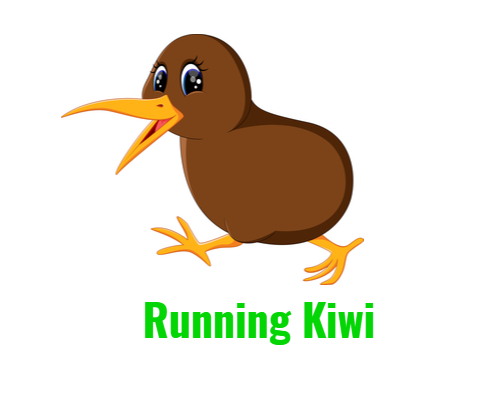Peter Snell, a legendary middle-distance runner from New Zealand, made a significant impact on the international running scene throughout his career. Born in 1938, Snell initially found success in various sports such as rugby, cricket, golf, and tennis before eventually discovering his natural talent for middle-distance running. His extraordinary abilities and dedication to the sport would eventually place him amongst the most celebrated athletes of his time.
Snell first gained international attention when he won a gold medal in the 800 meters at the Rome Olympics in 1960, setting a new national record in the process. This impressive achievement marked the beginning of his remarkable career in track and field. Snell would continue to break records and claim victories, including setting world records in the 800-meter race, the 1,000-meter race, the mile, and the 880-yard race, as well as contributing to his team’s record in the 4 × 1-mile relay race.
Throughout the years, Peter Snell solidified his status as a top-tier athlete by dominating in subsequent competitions, such as the Tokyo Olympics in 1964 where he won gold and set new Olympic records in the 800 meters and 1500 meters. With his unwavering dedication to the sport, Snell serves as an inspiring figure and a prime subject for a runner’s profile.
Early Years and Background
Birth and Childhood
Peter Snell was born in Opunake, Taranaki, New Zealand on December 17, 1938. His parents were keen sporting enthusiasts, which influenced Peter’s interest in athletics from a young age. By the age of five, he was already playing tennis, and by eight, he participated in various sports such as swimming, rugby, badminton, golf, cricket, and hockey.
Education at Mount Albert Grammar School
During his time at Mount Albert Grammar School, Peter continued to play multiple sports and remained physically active. His solid build and natural athleticism eventually led him to focus more on middle-distance running. This choice eventually catapulted him onto the international stage as a dominant force in the world of competitive running.
Emergence as an Athlete
Inspiration and Introduction to Athletics
Peter Snell, a New Zealand middle-distance runner, began his athletic journey participating in various sports like rugby, cricket, golf, and tennis. It wasn’t until he met Arthur Lydiard, a renowned coach, that he was introduced to the world of athletics. Solidly built and muscular, Snell was a natural fit for the sport, and under Lydiard’s guidance, he started honing his skills in middle-distance running events.
Rapid Development and Early Success
Snell’s progress was rapid, and his talent became evident as he began participating in various competitions. His international breakthrough came at the 1960 Olympic Games in Rome, where he surprised the world by winning a gold medal in the 800-meter event. Just four years later, Snell continued to dominate at the Tokyo Olympics, winning gold and setting a new Olympic record in the 800 meters as well as earning another gold medal in the 1500-meter race.
Arthur Lydiard played a significant role in Snell’s success, as his training methods set a solid foundation for Snell’s athletic career. This partnership between the athlete and the coach cemented their names in the annals of running history. Through hard work and dedication, Peter Snell emerged as one of the most remarkable middle-distance runners of his time.
Breakthrough and Standout Performances
Rome Olympics
Peter Snell first achieved international success with a gold medal in the 800 meters at the Rome Olympics in 1960. This record-breaking victory established Snell as a formidable runner and a source of national pride for New Zealand.
Commonwealth Games
In 1962, Snell participated in the Commonwealth Games held in Perth, Australia. There, he teamed up with fellow New Zealanders, Murray Halberg and Gary Philpott, and continued his string of dominant performances. Snell and his teammates went on to break the world records in the 880 yards and the 4 × 1-mile relay race.
World Record Runs
Snell demonstrated time and time again that he was a talented runner with a penchant for smashing records. In 1962, Snell set a new world record in the mile race with a time of 3:54.4 minutes in Auckland, New Zealand. This was an incredible achievement, which he followed by breaking more world records in the 800-meter, 1,000-meter, and 880-yard races between 1962 and 1968.
Snell further cemented his status as a standout athlete in the 1964 Tokyo Olympics. In an historic feat, he won gold and set a new Olympic record in the 800 meters, and then proceeded to win gold in the 1500 meters. By accomplishing this impressive double victory, he became the first man in 44 years to complete that particular Olympic 800m/1500m combination.
Partnership with Arthur Lydiard
Influence and Mentoring
As a prominent middle-distance runner during the 1960s, Peter Snell had a strong partnership with his coach Arthur Lydiard. Lydiard was an influential figure in the world of athletics, coaching numerous Olympic medalists, including Snell himself. The mentorship between Snell and Lydiard played a significant role in Snell’s success, as Lydiard developed and fine-tuned the training programs that enabled Snell to reach peak performance.
Cross-Country Training
Arthur Lydiard’s innovative training approach involved a combination of long-distance running and shorter fast runs, with an emphasis on hill training. One of the key features of Lydiard’s coaching method was the Waiatarua Circuit, which is a grueling, 22-mile cross-country route in Auckland. This training format aimed to develop both fast-twitch fibers and endurance, enabling middle-distance runners like Peter Snell to excel in races.
During their time together, Lydiard closely monitored Snell’s progress and regularly adjusted his training regimen, ensuring optimal pace and conditioning. As a result, Snell went on to break multiple world records and win three Olympic gold medals. The strong partnership between Peter Snell and Arthur Lydiard not only led to Snell’s successful career but also showcased the effectiveness of Lydiard’s coaching philosophy, which continues to influence athletes and coaches around the world.
Tokyo Olympics and Golden Period
800m and 1500m Events
At the Tokyo Olympics held in 1964, Peter Snell competed in both the 800m and 1500m events. He was considered a world-class athlete, having already earned recognition as a world record holder in the 800-meter and 1500-meter races. As a strong contender in both events, expectations were high for Snell to put forth a remarkable performance.
Extraordinary Wins and Records
True to his reputation, Snell outperformed his competitors and clinched gold medals in both the 800m and 1500m events at the Tokyo Olympics. His 800m win came with an impressive Olympic record time of 1:45.1, making it the second-fastest performance in history, only behind his own world record of 1:44.3.
Achieving this rare 800m-1500m gold medal double, Snell solidified his place in Olympic history as a true champion. In the eight days leading up to the final 1500m race, Snell participated in a total of five races that included heats, semi-finals, and finals across both the 800m and 1500m events. His incredible victories, with such clear margins compared to other Olympic 800m/1500m doubles, highlighted Snell’s exceptional skills, dedication, and strength during this golden period of his career.
Transition to Academic Life
Pursuit of Higher Education
After a successful running career, Peter Snell transitioned to academic life, with a focus on the field of exercise physiology. He pursued various degrees, starting with a B.S. in Human Performance from Massey University. His desire to understand the science behind endurance eventually led him to a Ph.D. in Exercise Physiology from the University of Texas Southwestern Medical Center at Dallas.
Prominence as a Scholar of Physiology
Throughout his career as a sports scientist, Peter Snell made significant contributions to the understanding of endurance and the physiological factors related to it. One area of focus for Snell was the investigation of glycogen buildup and its implications on athletic performance. His research on endurance and exercise physiology expanded the collective knowledge in the field and has been well-regarded in academic circles.
Snell’s dedication to the advancement of exercise physiology helped him become a prominent scholar in the field. He held positions at the University of Texas Southwestern Medical Center, the American College of Sports Medicine, and was a notable influence within exercise physiology communities worldwide.
Peter Snell’s ability to blend his experiences as an athlete with his passion for academics allowed him to make a significant impact on the understanding of endurance in sports. His work has left a lasting legacy for future generations of sports scientists and athletes striving to improve their performance.
Later Years and Legacy
Honors and Recognition
Peter Snell was honored with various awards during his lifetime. In 1962, he was appointed as a Member of the Order of the British Empire (MBE) for his achievements in athletics. Later, in 2002, he was knighted for his services to sports, becoming Sir Peter Snell. His accomplishments were also recognized internationally, as he was inducted into the International Association of Athletics Federations (IAAF) Hall of Fame in 2012. Moreover, his feats helped lay the foundation for New Zealand’s running tradition, alongside other notable Kiwi runners like Murray Halberg and Barry Magee.
Life Beyond Athletics
After retiring from competitive sports, Sir Peter Snell continued to contribute to the field of sports science. He earned a Ph.D. in exercise physiology, researching and studying how he achieved his exceptional performances on the track. His scientific expertise and athletic background provided a unique perspective for understanding the physiological demands of professional sports.
Aside from his academic pursuits, he also remained committed to promoting a healthy lifestyle through physical activity. He continued to participate in various sports, including squash and orienteering, and helped mentor younger athletes in developing their skills.
Throughout his life, Sir Peter George Snell was a true icon in the world of athletics. His phenomenal achievements on the track, combined with his scholarly work in sports science, solidified his legacy as both a remarkable athlete and a distinguished expert in the field.


